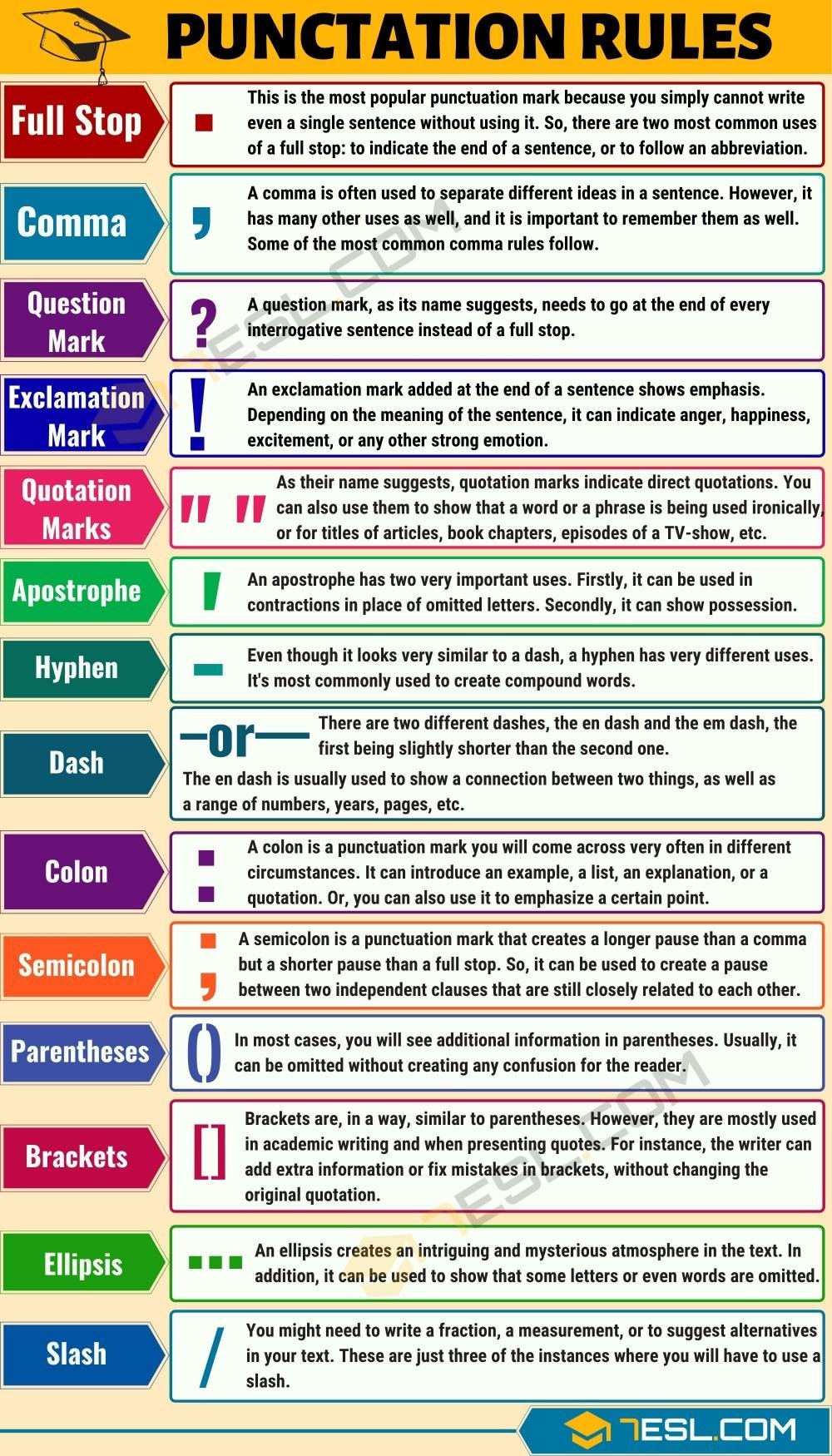Punctuation is a crucial aspect of grammar that helps convey meaning and clarity in writing. Without proper punctuation, sentences can be confusing and difficult to understand. By following the rules of punctuation, you can ensure that your writing is clear, concise, and easy to read.
There are several important punctuation rules that every writer should be aware of. From commas to semicolons, mastering these rules can greatly improve the quality of your writing. Let’s explore some of the key rules for punctuation below.
Grammar Rules for Punctuation
1. Commas: Commas are used to separate items in a list, introduce a clause, or set off non-essential information. For example, “I need to buy apples, bananas, and oranges at the store.” Commas can also be used to separate independent clauses when joining them with a conjunction like “and” or “but.”
2. Periods: Periods are used to indicate the end of a sentence. They are also used in abbreviations, such as “Dr.” for doctor or “Mr.” for mister. It’s important to always include a period at the end of a sentence to signal a complete thought.
3. Semicolons: Semicolons are used to connect two closely related independent clauses. They can also be used to separate items in a list when the items themselves contain commas. For example, “I have lived in New York, New York; Los Angeles, California; and Chicago, Illinois.”
4. Quotation Marks: Quotation marks are used to indicate direct speech or to show that a word or phrase is being used ironically or in a special sense. They should always be placed before and after the quoted material, such as “I love to read books,” she said.
5. Exclamation Points and Question Marks: Exclamation points are used to convey strong emotions or excitement, while question marks are used to indicate a question. It’s important to use these punctuation marks appropriately to convey the intended tone of your writing.
In conclusion, mastering the rules of punctuation is essential for effective communication and clear writing. By following these guidelines, you can ensure that your writing is grammatically correct and easy to understand. Remember to always proofread your work to catch any punctuation errors and make necessary corrections. With practice and attention to detail, you can become a skilled writer who uses punctuation effectively to convey your message.
